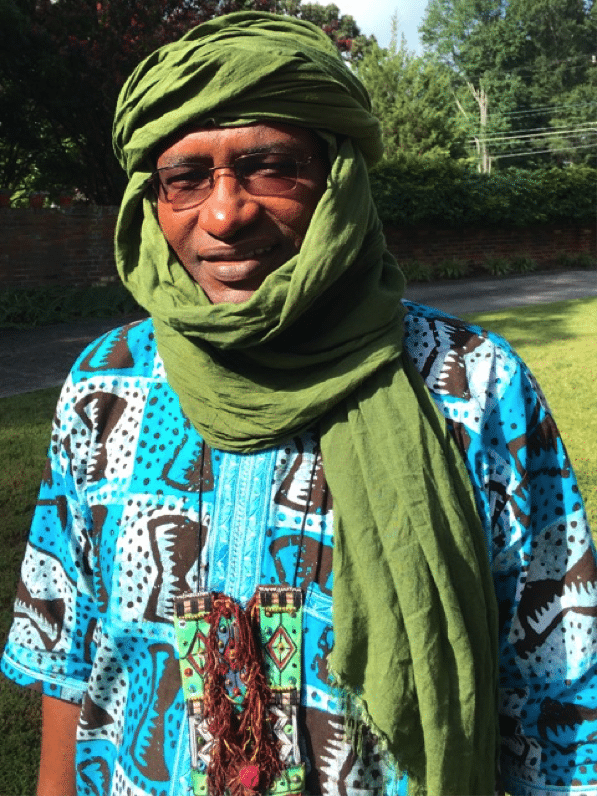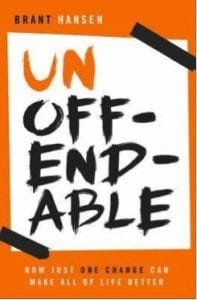filter posts:
Date
Restored friendship sweeter than revenge
 The story goes that a Korean houseboy was hired by a group of American soldiers during the war to take care of their needs. The soldiers liked this young man, but they tormented him mercilessly. They nailed his shoes to the floor while he slept. They put grease on the stove handles, and mounted a bucket of water over the door so that he got drenched when he walked in. Through it all, however, he never complained. He just went about his work, and smiled, and seemed to take it all in stride. One day the soldiers began to feel guilty, so they called him in to apologize. “We want to stop all our pranks, and tell you we are sorry,” they said. “We won’t do it again.”
The story goes that a Korean houseboy was hired by a group of American soldiers during the war to take care of their needs. The soldiers liked this young man, but they tormented him mercilessly. They nailed his shoes to the floor while he slept. They put grease on the stove handles, and mounted a bucket of water over the door so that he got drenched when he walked in. Through it all, however, he never complained. He just went about his work, and smiled, and seemed to take it all in stride. One day the soldiers began to feel guilty, so they called him in to apologize. “We want to stop all our pranks, and tell you we are sorry,” they said. “We won’t do it again.”
“No more nails in shoes?” the houseboy asked.
“No more,” the men promised.
“No more sticky on stove?”
“No more,” they said.
“No more water on head?”
“No more,” they answered.
“OK,” said the houseboy. “No more spit in soup!”
Ahh, revenge. It comes to us quite easily doesn’t it? Francis Bacon said, “Revenge is a kind of wild justice.” Lord Byron said, “Revenge is sweet.”
The late financial counselor, Larry Burkett, used to tell the story of the man who bought a Mercedes for $50. He was looking in the L.A. Times classified section one day and saw an ad for a nearly new Mercedes for $50. Sure that it was a misprint, he called the number and the woman assured him that the car really was for sale for that price. He told her be would be right over, and set a new land speed record getting to her house. Expecting to find a problem but hoping against hope that this was not a dream, the man discovered a shiny new Mercedes, in mint condition, in the woman’s driveway. He quickly wrote her a check for $50 before she could change her mind, and when she handed him the keys, he said, “Do you mind me asking why you are selling this car for this price?” She said, “Not at all. My husband decided he didn’t want to be married to me any more, and he left me for another woman. He called two days ago and said we would divide everything up and told me to sell the Mercedes and send him half.”
Ahh, revenge. It just seems to feel right, doesn’t it? The problem is, many things that feel right are deadly wrong. Revenge may feel great going down, but you pay for it later. Getting revenge is like drinking poison and waiting for the other person to die.
Jesus made it clear how I am to respond when someone hurts me. If I have been offended, I am instructed to go to the person who sinned against me and tell him what he did. Just the two of us, face to face. Jesus said, “If he hears you, you have gained your brother.” That’s the goal, that our relationship would be restored, not that I get my pound of flesh. If he will not listen, then I get a trusted and mature friend and go back to him. Just the 3 of us, face to face. If he still will not listen, then I go before the church leadership with the problem. In every step, restoration is the destination, and forgiveness, not revenge, is the vehicle that will get you there.
A restored friendship is much sweeter than revenge could ever be. If you don’t believe it, call me when you want to sell your Mercedes.
October 10, 2016
Snobbery and faith don’t mix
 In his commentary on James, Kent Hughes tells the story of a woman who came from “the other side of the tracks,” to visit a prominent church in her city. She may have wondered why no one ever spoke to her or welcomed her, but she liked the church anyway, wanted to join, and told the pastor so. He told her to go and think about it for a week. She did and came back and told him she wanted to join, and he said, “Let’s not be hasty. Go home and read your Bible every day for an hour, and come back next week and see if you still want to join.” She did. And came the next week wanting to join. He said, “Let’s do one more thing. Go home and pray every day this week, asking the Lord if he wants you to come into this fellowship.” The pastor didn’t see her after that for six months. Then one day they met on the street, and he asked her what had happened. She said, “Oh, I did what you suggested. I prayed every day for a week, and one day while I was praying the Lord said to me, ‘Don’t worry about not getting into that church. I’ve been trying to get into it myself for the last 20 years!’”
In his commentary on James, Kent Hughes tells the story of a woman who came from “the other side of the tracks,” to visit a prominent church in her city. She may have wondered why no one ever spoke to her or welcomed her, but she liked the church anyway, wanted to join, and told the pastor so. He told her to go and think about it for a week. She did and came back and told him she wanted to join, and he said, “Let’s not be hasty. Go home and read your Bible every day for an hour, and come back next week and see if you still want to join.” She did. And came the next week wanting to join. He said, “Let’s do one more thing. Go home and pray every day this week, asking the Lord if he wants you to come into this fellowship.” The pastor didn’t see her after that for six months. Then one day they met on the street, and he asked her what had happened. She said, “Oh, I did what you suggested. I prayed every day for a week, and one day while I was praying the Lord said to me, ‘Don’t worry about not getting into that church. I’ve been trying to get into it myself for the last 20 years!’”
James questions the integrity of those in the church who would welcome the rich man to the church, offering him the best seat, fawning over him because of his wealth, and then telling the poor man dressed in shabby clothes to stand, or if he must, be seated on the floor. There’s a difference between showing honor to someone and showing partiality. We honored three sailors in our church two weeks ago, three young men who are stationed at different places and had come home to Antioch while on leave. If the governor or any civic leader were to visit the church, we would honor him or her because of the position God has given them. Peter said, “Honor everyone. Love the brotherhood. Fear God. Honor the emperor.” But here’s the thing. If the wealthiest person in town showed up in your church, you would do wrong to make a big show of his attendance, to honor him simply because of his wealth. The sad truth is that too often churches go even further, making a rich man an elder, not because he has the spiritual qualifications, but because he has a pocketful of cash.
The question James is asking us to consider is this: does our reaction change depending on who walks in the door on Sunday morning? To show partiality means literally to “receive the face,” to accept or reject a person based on outward appearance. Our tendency may be to see the clothes and the car and the house and the lifestyle, and to honor someone based on those things. We must not do that, and if we allow that thinking in the church, we are headed for trouble. You see, though the world puts premium value on wealth and status, the church must not, because God has turned that upside down in Christ. “He has brought down the mighty from their thrones and exalted those of humble estate; He has filled the hungry with good things, and the rich He has sent away empty.”
True riches are only found in Christ, and He welcomes all who come to Him by faith: rich or poor, highly educated or a high school dropout, powerful in society or just known by friends and family.
October 3, 2016
A mission to care for the least of these
 We are told in Scripture to visit widows and orphans in their time of need. It’s a powerful word in the Bible, to “visit” someone, and is used of the Creator. God didn’t send money or a postcard or even a representative. He came Himself. He visited us in our time of affliction. To visit widows and orphans is to enter their world, to make a difference in their lives, to help them in their time of need. Why widows and orphans? Because they were then, and they continue to be now, the most marginalized, the least cared for, the most vulnerable. The least, the last, the lowest. I love the story in Luke 7 when Jesus was about to enter the town called Nain, but traffic was stopped for a funeral procession. A young man was being carried out for burial, the only son of his widowed mother. Jesus stopped the procession, told the widow not to weep, and then spoke to the dead man: “Young man, I say to you, arise.” He sat up and started talking! But the best part of the story is what happened next: Jesus gave him to his mother. Jesus visited that widow in the time of her affliction, and changed her circumstances. He gave back to her the one she needed, the son who could take care of his mother.
We are told in Scripture to visit widows and orphans in their time of need. It’s a powerful word in the Bible, to “visit” someone, and is used of the Creator. God didn’t send money or a postcard or even a representative. He came Himself. He visited us in our time of affliction. To visit widows and orphans is to enter their world, to make a difference in their lives, to help them in their time of need. Why widows and orphans? Because they were then, and they continue to be now, the most marginalized, the least cared for, the most vulnerable. The least, the last, the lowest. I love the story in Luke 7 when Jesus was about to enter the town called Nain, but traffic was stopped for a funeral procession. A young man was being carried out for burial, the only son of his widowed mother. Jesus stopped the procession, told the widow not to weep, and then spoke to the dead man: “Young man, I say to you, arise.” He sat up and started talking! But the best part of the story is what happened next: Jesus gave him to his mother. Jesus visited that widow in the time of her affliction, and changed her circumstances. He gave back to her the one she needed, the son who could take care of his mother.
Brant Hansen tells the story of his grandmother whom he said was the quintessential bread-baking, flower-growing, sweet-hearted grandma. She took care of his rude, demanding grandpa for more than a decade, hand and foot, because, Hansen writes, “She knew him as a different man, the man he was, and the man he could be.” After her husband died, Hansen’s widowed grandma eventually moved into a nursing home. One day a nurse handed her a glass of orange juice, and “My grandma,” Hansen wrote, “the sweetest grandma ever, threw it back in her face.” She wasn’t herself anymore. But the nurse got another glass of juice for her, because, that’s what it means to visit widows in their time of need. We don’t care for widows because of what they can do for us. Nor do we adopt orphans, or have children of our own, because of how they will benefit our lives. We do so because each life is precious to God, made in His image, created to know Him, glorify Him, and enjoy Him forever.
Jesus told His disciples that one day the righteous will stand before Him at the judgment, and be welcomed into the kingdom that is being prepared for them. And, they will be told that they fed him when he was hungry, and gave him drink when he was thirsty. And that they welcomed Jesus as a stranger and clothed him when he was naked. And when Jesus was sick or in prison, they visited him. The righteous will look at each other and the Lord in amazement, because they will not remember a time when they fed Him. He fed them often. Or when they gave Him a drink. He gave them living water. Or when He was feeling uneasy as a stranger and they invited Him in. He gave them hope, an eternal home, and a reason to live. And for the life of them, they don’t remember when the Lord was naked or sick or in prison.
And He will say to them, to all of us who know Him as Lord, “As you did it to one of the least of these my brothers, you did it to me.”
September 26, 2016
Bridle your tongue, you’ll be the better for it
 When you go to a doctor or your dentist for a checkup, one of the things he or she does is look at your tongue. That’s because the tongue is a physical barometer for good or bad health. Nice and pink with little bumps everywhere? Sounds just about right. Bright red? May be glossitis. White patches? Could be thrush. Too smooth? Possible vitamin deficiency.
When you go to a doctor or your dentist for a checkup, one of the things he or she does is look at your tongue. That’s because the tongue is a physical barometer for good or bad health. Nice and pink with little bumps everywhere? Sounds just about right. Bright red? May be glossitis. White patches? Could be thrush. Too smooth? Possible vitamin deficiency.
The tongue is also a spiritual barometer for good and bad health. Jesus said, “What comes out of the mouth proceeds from the heart, and this defiles a person.” We see it in sports. Games are lost sometimes, not because of the play on the field, but because of the mouth of a coach or player. We see it in politics every day, and no presidential election in my memory has ever been marked on both sides by such a cesspool of vitriol and slander and lying and childish speech. Whoever loses this year’s presidential election can look in the mirror the next day, stick out his or her tongue and say, “You are the reason I lost!” We see it in churches and workplaces and homes, too. Marriages are damaged by careless speech, and people lose jobs or leave churches because of gossip or slander.
The tongue is a fire, James says, and it is set on fire by hell. I know that many of my troubles over the years have started with my mouth. In the ninth grade I challenged a guy named David Briggs to a fight after school because he was going with the girl I liked. The silly thing is that the girl didn’t like me! But then again, what does logic have to do with hormones? Anyway, I got in his face during lunch one day and said, “Me and you, Briggs. After school. In the wrestling room.” I said it with as much bravado as I could muster, as I looked up at David and poked him in the chest. He outweighed me by at least 75 pounds. He was an offensive lineman on the football team, an upperclassman, and a stud. I was a pipsqueak with an attitude. David looked down at me and laughed. Then he shook his head and said, “Are you serious? Fox, it’s not your day to die. Go pick a fight with someone your size.” That made me mad, so I poked him again and said, “See you after school.” Well, news travels fast of an execution. After school David and I stood on the center of the mat, and there were probably 100 kids around us, yelling and laughing and waiting to see the massacre. That’s when it happened. No, I didn’t execute a perfect flying roundhouse and knock David out. Nor did I put him in the sleeper hold that I had learned watching Championship Wrestling with my grandfather. Instead, David walked over, put his arm around my shoulders, and said with a friendly smile, “I’m not going to fight you, Fox.” He started to walk away, and I said, “You’re afraid, aren’t you?” He turned and said, “Yes. I’m afraid I would kill you.” Then he walked out as I stood there trying to look tough, trying to look like I had actually won the fight.
Want to know what’s in your heart? Stick out your tongue. Listen to what rolls off it with ease. Then, ask the Lord to help you bridle it by changing your heart.
Your health depends on it, and your loved ones and friends will be forever grateful.
September 19, 2016
We grow according to our obedience
The late poet Archibald Rutledge told of meeting a man whose dog had just been killed. Heartbroken, the man explained to Rutledge how it happened. Because he worked outdoors, he often took his dog with him. That morning, he left the animal in a clearing and gave him a command to stay and watch his backpack that had his lunch in it, while he went into the forest. His faithful friend understood, for that’s exactly what he did. Then a fire started in the woods, and soon the blaze spread to the spot where the dog had been left. He stayed right where he was, in perfect obedience to his master’s word. With tears, the dog’s owner said, “I always had to be careful what I told him to do, because I knew he would do it.” That’s the kind of obedience that Jesus demonstrated to the Father. He went through the fires of suffering and death to accomplish God’s purpose, to win our pardon, pay for our sin and invite us into a relationship with Him. For His glory and for our great good, He also calls us into obedience to the Father’s will, no matter the cost.
In James’ powerfully practical book, he says the key to obedience to God is found in looking intently into the perfect law of liberty, God’s Word, and then doing what it says. Sounds so simple, doesn’t it? Why then do most of us struggle with this? James said a person who hears the Word and doesn’t do it is like a man who looks in a mirror and walks away, forgetting at once what he looks like. Most scholars believe the man forgets what he looks like not because he has short-term memory loss, but because he chooses to forget. He looks at himself in the mirror and sees the ravages of sin, the scars of lifestyle choices, the marks of laziness or lust, bitterness or gluttony. And he hurries away to the rest of his day, because he doesn’t even want to think of what changes he would have to make if he really took the image in the mirror seriously.
Isn’t that what Sunday morning can become, and has for many? We hear the Word and know that God is speaking to us, but as soon as the last amen is uttered we are out the door and on our way and whatever rumblings we were feeling in our soul during the sermon are gone. I have been in the movie theater, and so have you, where the credits are rolling and no one is moving. Everybody is sitting speechless, powerfully moved by what they have just seen and heard. There’s not a whisper in the place and if there is, it seems unholy. Everyone is stunned by what just happened, and no one wants to leave. That begs the question: when was the last time you responded to the Word like that? When was the last time you heard the message of truth from the Scripture and could not move from your seat until you had dealt with what God was speaking into your soul? Those times are much too rare, friends, but they don’t have to be. They increase at the same rate with which we take the truth of God’s Word for what it is.
Do you ever wonder why some Christians grow to maturity with rocket-like speed, and others seem to plod along in the same place for years? This is a key. We grow up in proportion to our obedience.
September 12, 2016
Do not deceive yourself!
When Gene Chizik was the Auburn football coach, one of his players told him he wanted to be a doctor. But all Chizik had heard about were the player’s many trips to local watering holes. He called the student in and asked him if he still wanted to be a doctor. He said, “Yes sir.” Chizik replied, “No you don’t. You want to be a drunk. That’s what you’re repeatedly doing.” When Chizik told this story to writer Lee Pace, he referenced a quote by Aristotle: “You are what you repeatedly do. Therefore, excellence becomes not a single act, but a habit.” Chizik said, “This guy said he wanted to be a doctor. But that’s not what he was doing…Your habits tell me who you are.”
Gene Chizik held up a mirror for that student, didn’t he? He showed him what everybody else saw and what the student was deceiving himself into not seeing. Sometimes we just ignore the mirror. I was in a restaurant once and saw a man and his wife engaged in intimate conversation, leaning forward and gazing into each other’s eyes across the table. Hanging off his earlobe was what looked like a dollop of shaving cream. There were two things funny to me about that scenario. First, that he had never seen the dangling cream or maybe he had, but then the phone rang before he could get it off and he forgot about it. And second, that this woman who was gazing adoringly into his eyes wouldn’t tell him he looked ridiculous! We’ve all been there, haven’t we? Gotten dressed in the dark and ended up with a brown sock and a blue sock. Although today maybe that’s a fashion statement and not a faux pas. Or maybe you have walked out of a bathroom all zipped up and dressed in your best, not realizing you’re trailing toilet paper stuck to your shoe. Shaving cream, socks and toilet paper can only lead to a wounded pride. What if we are deceived about whether we are walking in truth? The stakes then are much higher. That’s why the Bible urges us, “Be doers of the Word, not hearers only, deceiving yourselves.”
Imagine someone who has a chronic illness going to a doctor and being told, “This is an illness I see every day, and there are three things you need to do to slow its progression and move towards a cure. If you don’t do these things, your condition will get worse and you will become debilitated. So, do this: Take this pill every day. Do this exercise for 25 minutes every day. Change your diet in this way.” The patient nods and walks out. Three weeks later a good friend asks the person how he is doing and he says, “Oh, I’m getting worse every day.”
“What?” the friend says. “I thought the doctor told you what to do that would help you improve.” The patient says, “I’m not going to do those things! The pill is hard to swallow and besides, I don’t like some of the side effects. Exercise wears me out, and besides, I just don’t have time to do that every day. Changing my diet is a pain, and besides, I like what I eat. I’ve been eating this way for 20 years.” What would you say to that person if he were your friend? What should you say to yourself if that is you?
Don’t kid yourselves. The truth of God’s Word is not for our information, but for our transformation. It only works if we walk it out.
September 5, 2016
The Lord came to Mohamed
 Mohamed-Ibrahim Yatarra was born and raised as a Muslim in Mali, West Africa. The oldest of 14 children, at 5 years old he was sent to school to learn the ways of Islam and to study the Koran. His father was a schoolteacher, and a strict disciplinarian. Mohamed remembers watching his friends playing soccer outside on many afternoons when school was over, while he was kept inside, studying. When he was 14, Mohamed ran away from home and fled to his uncle’s house, in another city. His uncle was a Christian pastor and, surprised to see Mohamed, he welcomed him to join the family for lunch and said, “Before we eat lunch, we will pray.” Mohamed was impressed but shocked by this. He had been taught that Christians never pray and are evil people. But during that week, he heard their prayers and was moved by them. He saw their devotion to Jesus and was drawn to it. He participated in a Vacation Bible School at his uncle’s church and learned many Bible verses and songs about Jesus. The teaching impressed him, but at the end of the week when the invitation was given, he did not go forward. He told himself, “Mohamed, this is not for you.”
Mohamed-Ibrahim Yatarra was born and raised as a Muslim in Mali, West Africa. The oldest of 14 children, at 5 years old he was sent to school to learn the ways of Islam and to study the Koran. His father was a schoolteacher, and a strict disciplinarian. Mohamed remembers watching his friends playing soccer outside on many afternoons when school was over, while he was kept inside, studying. When he was 14, Mohamed ran away from home and fled to his uncle’s house, in another city. His uncle was a Christian pastor and, surprised to see Mohamed, he welcomed him to join the family for lunch and said, “Before we eat lunch, we will pray.” Mohamed was impressed but shocked by this. He had been taught that Christians never pray and are evil people. But during that week, he heard their prayers and was moved by them. He saw their devotion to Jesus and was drawn to it. He participated in a Vacation Bible School at his uncle’s church and learned many Bible verses and songs about Jesus. The teaching impressed him, but at the end of the week when the invitation was given, he did not go forward. He told himself, “Mohamed, this is not for you.”
When the week was over, his uncle told Mohamed that he needed to go back home. When he returned, his friends came to see him, and the first thing he did was take out the New Testament his uncle had given him and he started reading to them. He was not a Christian, but wanted to explain to them what he had seen and heard. His father was listening and became very angry, and sent him back to the Koranic school, telling him that maybe this time he would learn how to be a good Muslim. “My father was trying to brainwash me,” Mohamed said, “and it worked.” He forgot his sidetrack into the Bible and studied the Koran. Two years later he was sent to high school in the same town where his Christian uncle lived, so he stayed in his house. Once again, he was drawn to Christianity, and found himself torn between the religion of his father and the faith of his uncle.
He read Muslim books and Christian books trying to understand, and would often defend Jesus to his Muslim friends. “I was very confused,” he said in his testimony at Antioch last Sunday, “because I also defended Islam to my Christian friends.” One night, he prayed, “God, I want to know the truth. Is it Islam? Is it Christianity? Maybe there’s another religion, I don’t know. I just want to know the truth.” Immediately he remembered a Bible verse he had learned four years earlier at Vacation Bible School: “He saved us, not because of works done by us in righteousness, but according to His own mercy.” That night, the Lord came to Mohamed, and this young man’s faith was settled once and for all.
His father disowned him when he heard of his conversion, but Mohamed continued to visit his father to show him honor. After his marriage, he asked if one of his younger siblings could come and live with him and his new wife, but his father said no. “You will try to make him a Christian.” A year later, his father passed away and since Mohamed was the oldest son, he was given the privilege of raising his younger 13 siblings. Today, all but two of them are following Jesus.
The Lord came to seek and save the lost. In every nation.
August 29, 2016
He chose me despite my weakness
 I remember it like it was yesterday. It is my fourth-grade class with Mrs. Wade and time for recess. Every day, it is the same. When the teacher announces recess, I am at once fearful and elated, filled with dread and excited at the same time. Why? I am excited and elated because I get to go outside and play, one of my passions even to this day. I am fearful and filled with dread because I am one of the smallest boys in the class, and I know that recess means kickball. I know that kickball means that the two biggest boys in the class will announce that they are captains and start choosing their teams. The girls will stand off to the side and giggle as the boys make their selections from among the rest of us young pre-pubescent males who are standing there, trying to look tough and athletic. Not me. I am standing behind a row of taller boys, and occupying my full attention by gazing at my right foot. Anyone who is observing this whole scene would have to write in his notes: “The short, skinny kid, Fox, is staring at his right sneaker like it’s his job. What is going on with him?” What is going on is that I know what will happen. Every single boy on that field will be chosen until there are two left, me and this other little kid named Albert or Edgar, I can’t remember. Then the two self-appointed captains will argue over who gets me and who gets the other kid. The girls on the sideline, in the meantime, are whispering to each other and giggling into their hands. I am dying. The selection process is finally over, and the game begins, and I can relax and go hard after every ball. I always tried to make up with hustle and effort what I lacked in size and skill.
I remember it like it was yesterday. It is my fourth-grade class with Mrs. Wade and time for recess. Every day, it is the same. When the teacher announces recess, I am at once fearful and elated, filled with dread and excited at the same time. Why? I am excited and elated because I get to go outside and play, one of my passions even to this day. I am fearful and filled with dread because I am one of the smallest boys in the class, and I know that recess means kickball. I know that kickball means that the two biggest boys in the class will announce that they are captains and start choosing their teams. The girls will stand off to the side and giggle as the boys make their selections from among the rest of us young pre-pubescent males who are standing there, trying to look tough and athletic. Not me. I am standing behind a row of taller boys, and occupying my full attention by gazing at my right foot. Anyone who is observing this whole scene would have to write in his notes: “The short, skinny kid, Fox, is staring at his right sneaker like it’s his job. What is going on with him?” What is going on is that I know what will happen. Every single boy on that field will be chosen until there are two left, me and this other little kid named Albert or Edgar, I can’t remember. Then the two self-appointed captains will argue over who gets me and who gets the other kid. The girls on the sideline, in the meantime, are whispering to each other and giggling into their hands. I am dying. The selection process is finally over, and the game begins, and I can relax and go hard after every ball. I always tried to make up with hustle and effort what I lacked in size and skill.
When Jesus came to his hometown to preach there for the first time, he opened the Old Testament to Isaiah and read a passage about the coming Messiah that included this statement: “He has anointed me to proclaim good news to the poor.” This is not an economic designation, this word for “poor.” Rather, it is a word that points to “those who for any number of reasons were relegated to positions outside the boundaries of God’s people.” Jesus came to proclaim good news to people who knew they were outside of God’s boundaries – all of us are – and who knew they were lost and needed a Savior – all of us do.
I am back on the kickball field, and I expect to be picked last. In terms of size and skill, I am poor, outside the boundaries of those who would be included in the athletic category. And then one of the captains overlooks a whole row of bigger, stronger boys who are smug in their expectation of being picked first. He finds me through the crowd, standing on the back row, looking at my feet, preparing myself to deal with the shame of being picked last or next to last. And he says, “I’ll take Mark.”
Of course, it never happened to me in kickball. I still got picked last. But it did happen to me with the Lord. He saw past all my sinful pride and rebellion and said, “I’ll take Mark.” He preaches the gospel to the poor, to the least likely, to the lowly. He proclaims good news to people like you and me.
August 22, 2016
Receiving the Word can change your life
 Rosaria Butterfield was a radical feminist, a lesbian, and a college professor who wrote about queer theory when her world was turned upside down. She was shown kindness and hospitality by a pastor and his wife, and after two years of being loved by them she came to know Jesus Christ as Lord. Butterfield is now a pastor’s wife, a mother, an author and a sought-after college speaker. Included in all that change was her attitude about the Bible. When Butterfield first started reading it as a professor, she did so not to hear what it had to say but to critique it, and to better understand how to discredit it in her classroom. In a recent interview with Marvin Olasky, editor of “World Magazine,” Butterfield said that during her feminist days she taught thousands of college students to despise the Bible. Now she has the opportunity to go on campus and face the fruit of her life, and she said, “I am really grateful that God has given me a chance to go and set the record straight.” At one time she was quick to reject the Bible, and now she is quick to hear it. That change in her life has made all the difference.
Rosaria Butterfield was a radical feminist, a lesbian, and a college professor who wrote about queer theory when her world was turned upside down. She was shown kindness and hospitality by a pastor and his wife, and after two years of being loved by them she came to know Jesus Christ as Lord. Butterfield is now a pastor’s wife, a mother, an author and a sought-after college speaker. Included in all that change was her attitude about the Bible. When Butterfield first started reading it as a professor, she did so not to hear what it had to say but to critique it, and to better understand how to discredit it in her classroom. In a recent interview with Marvin Olasky, editor of “World Magazine,” Butterfield said that during her feminist days she taught thousands of college students to despise the Bible. Now she has the opportunity to go on campus and face the fruit of her life, and she said, “I am really grateful that God has given me a chance to go and set the record straight.” At one time she was quick to reject the Bible, and now she is quick to hear it. That change in her life has made all the difference.
A side note of interest: Butterfield said she used to tell her students, “Look, if you want to argue with me about a book that I have read and you haven’t, I win! That’s it! No contest.” Now she says the same to students about the Bible and challenges them to give the book six months, to really read it with an open mind, and see what happens. “The Word of God is living and active, sharper than any two-edged sword,” and it brings radical change to those who “receive (it) with meekness.” Just look at the new life and work of Rosaria Butterfield.
The thing is, you can’t hear what the Bible says unless you are ready to listen. We used to teach our children to never walk into a room talking. If you do, we told them, two things are bound to happen. One, you will interrupt what is going on in the room. Two, you will not be ready to listen and learn from what is being said.
I was at the Y this week, and the poor guy who was in charge of a few kids for their summer program had a live one on his hands. I’m guessing this boy was around 7, and he was supposed to get his swimsuit on so they could go to the pool, but he wouldn’t do it. Here’s how their conversation went, word for word. “Do you want to go swimming?” “Yes.” “Then put on your suit.” “No.” “Then you will sit with me on the side of the pool.” “No.” “Those are your two choices. Put the suit on and swim or sit with me on the side.” “No.” They went through this routine three times until finally the boy just took off running out of the locker room and down the hall. My first thought was, “Dude, whatever they are paying you, it’s not enough.” Later I thought, “Lord, is that what it’s like, far too often, for You to deal with me?” That boy heard every word the camp staffer said to him. Every mumbling word. And he received with meekness exactly zero of them.
Listening to God’s Word is one thing. Receiving it with meekness? Now, that can change your life.
August 15, 2016
You can choose to be unoffendable
 What if you made a choice not to get offended? When someone cuts you off in traffic. When your spouse is rude or your boss is demanding or when the person in the checkout line decides to tell his life story to the cashier, while you wait and are late for a meeting? What would it be like to pull something besides anger out of your toolbox when others do something to annoy you or even hurt you?
What if you made a choice not to get offended? When someone cuts you off in traffic. When your spouse is rude or your boss is demanding or when the person in the checkout line decides to tell his life story to the cashier, while you wait and are late for a meeting? What would it be like to pull something besides anger out of your toolbox when others do something to annoy you or even hurt you?
That’s the premise of Brant Hansen’s book, “Unoffendable.” He writes, “OK, this may sound like the dumbest thing you’ve ever read, but here goes: You can choose to be unoffendable.” Some of you may find that offensive, but hold on. What would your life look like if all the energy you put into getting angry and holding onto grudges and feeling bitter and shutting people out was not spent there but on enjoying life and people and God’s creation?
Hilly is the character in the movie “The Help” that you cannot help but dislike. She is racist to the core, and treats the black woman who works for her like trash. Aibileen is good friends with Hilly’s maid and says to Hilly one day, “Ain’t you tired, Miss Hilly? Ain’t you tired?” It’s a classic scene and that question cuts to the heart of it for all of us. Aren’t we tired of keeping people at arm’s length because they are different? Or of drilling down into everything others say to see if there’s anything there that we should be offended about? Aren’t we tired of having to turn the other way when we see “that” person one aisle over in the drugstore? Aren’t we tired of measuring people’s worth by how much they agree with us or how much they can help us succeed?
Let’s face it, anger is easy to use, but it takes a lot of energy. It takes energy to justify our anger. It takes energy to keep it simmering so the coals don’t cool and we start forgetting how we feel about that person who hurt us. It also takes a lot of energy to quit a job because we’re angry. And to find another one. Or to end a relationship. Or to move. The sad truth, though, is that for some, anger becomes a lifestyle. Hansen writes, “We run into this in our small church community: people come to our group, and they’re tremendously excited about it! They love it! They love us! It’s great! And they want to share! So they tell us about their past church, and how messed up it was because of whatever, and then the church before that, and this other group they had to leave because people were doing such and such — gee. Think they’ll soon find fault with us too? Of course. It’s a way of life. We get offended; we get disillusioned; we leave. Over and over and over.”
It doesn’t have to be that way. We can choose to be unoffendable. That does not mean we reduce ‘truth’ to the lowest common denominator. It doesn’t mean that there is no truth with a capital T and that everybody’s “truth” is equally valid. Jesus made it clear that He is the way, the truth and the life. He made it clear that unless you come to Him as a little child, you cannot enter the Kingdom of heaven.
But Jesus was a friend of sinners. He did not hide from those who opposed Him. He went close. He loved them. He chose to be unoffendable. We can, too.
August 8, 2016


